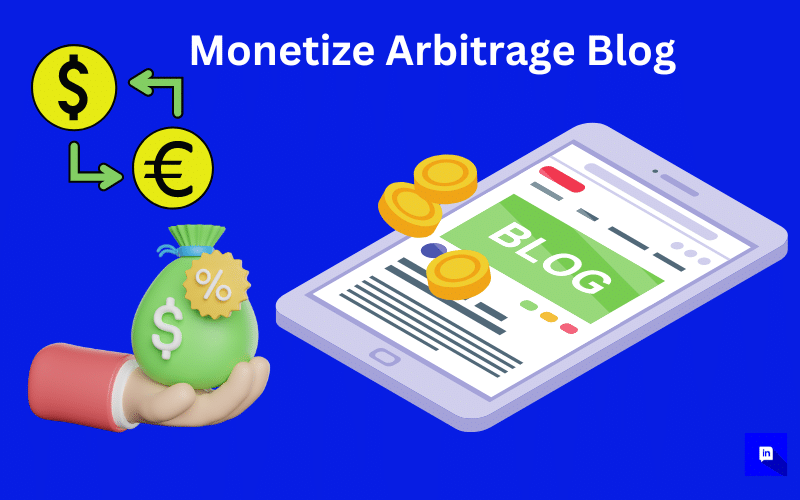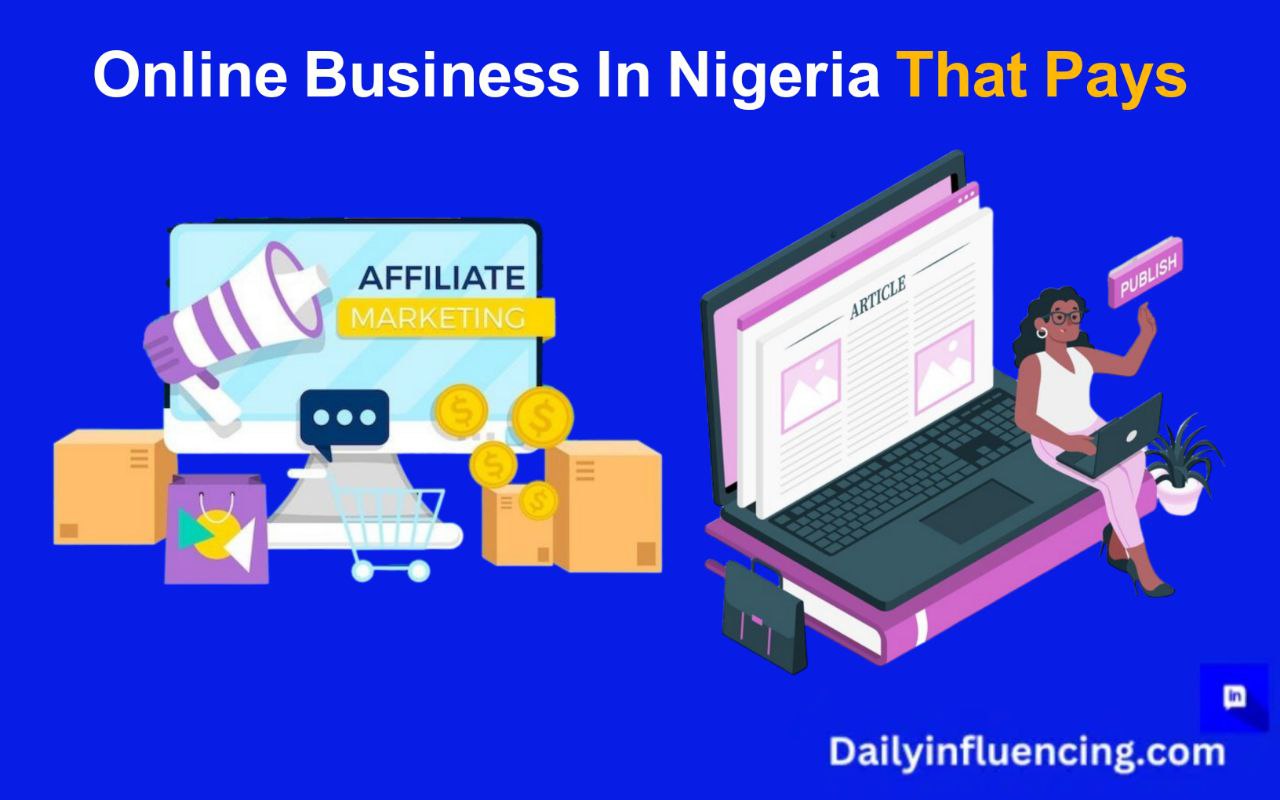
Blogging has become a popular way to make money online, and arbitrage blogging is one of the most lucrative methods. If you want to start arbitrage blogging in Nigeria, this guide is for you.
We’ll cover everything you need to know, from understanding what arbitrage blogging is to how you can get started. We will keep it simple and easy to understand so that everyone can follow along.
What is Arbitrage Blogging?
Arbitrage blogging involves buying traffic from one source at a lower cost and earning money from that traffic through ads or affiliate marketing on your blog. Essentially, you spend less on traffic than you earn from it. This difference, known as “arbitrage,” is your profit.
For example, you might buy traffic from Facebook ads, which costs you a certain amount per click. When these visitors come to your blog, they see ads from Google AdSense or other ad networks. If your ad revenue from these visitors is higher than what you spent on Facebook ads, you make a profit.
Why Consider Arbitrage Blogging in Nigeria?
Arbitrage blogging is appealing in Nigeria for several reasons:
- Low Startup Costs: Unlike some other online businesses, you don’t need a lot of money to start arbitrage blogging. A small budget for hosting, a domain name, and traffic ads is enough to get started.
- Flexible Work Schedule: Blogging allows you to work from anywhere and at any time. Whether you’re a student, a stay-at-home parent, or someone looking to earn extra income, arbitrage blogging provides flexibility.
- High Earning Potential: With the right strategy, arbitrage blogging can be very profitable. Some bloggers make hundreds or even thousands of dollars every month.
Steps to Start Arbitrage Blogging in Nigeria
Here are the steps to help you start arbitrage blogging in Nigeria:
Step 1. Choose a Niche
Choosing the right niche is the first and most crucial step in arbitrage blogging. A niche is a specific topic or area that your blog will focus on.
It’s essential to choose a niche that is not only interesting to you but also has a high potential for attracting traffic and generating revenue.
Popular Niches for Arbitrage Blogging:
- Recruitment and Scholarship
- Health and Fitness
- Personal Finance
- Technology and Gadgets
- Entertainment and Celebrity News
- Sports
Step 2. Set Up Your Blog
Once you have chosen a niche, the next step is to set up your blog. Here’s how to do it:
- Buy a Domain Name: Your domain name is your blog’s address on the internet. Choose a name that reflects your niche and is easy to remember. Websites like Namecheap and GoDaddy offer affordable domain registration services.
- Choose a Hosting Provider: Your hosting provider is where your blog will live on the internet. For beginners, affordable and reliable options like Bluehost or HostGator are recommended.
- Install WordPress: WordPress is a popular platform for bloggers because it’s easy to use and customize. Most hosting providers offer one-click WordPress installation.
- Pick a Theme: Your blog’s theme determines its look and feel. Choose a clean, responsive theme that looks good on both desktop and mobile devices.
- Set Up Essential Plugins: Plugins add functionality to your blog. Some essential plugins for arbitrage blogging include:
Yoast SEO: For optimizing your blog for search engines.
Google Analytics: For tracking your blog’s traffic.
WP Super Cache: For speeding up your blog’s loading time.
Step 3. Create High-Quality Content
Content is the backbone of your blog. High-quality, engaging content attracts visitors and keeps them on your site longer, which increases the chances they will click on ads or purchase through your affiliate links.
Tips for Creating High-Quality Content:
- Understand Your Audience: Write content that addresses the needs and interests of your audience. Use simple, clear language that is easy to understand.
- Use Eye-Catching Headlines: A good headline grabs attention and encourages people to click on your post. Use headlines that are informative and intriguing.
- Incorporate Keywords: Use relevant keywords that people are likely to search for on Google. This will help your blog rank higher in search engine results.
- Add Images and Videos: Visual content makes your posts more engaging and easier to digest. Use images, infographics, and videos to complement your text.
- Be Consistent: Consistency is key in blogging. Create a content calendar and stick to a regular posting schedule
Step 4. Monetize Your Blog

Once your blog is set up and you have some content, it’s time to start making money. There are several ways to monetize your arbitrage blog:
Google AdSense: This is one of the easiest ways to make money from your blog. You get paid when visitors click on ads displayed on your site. To get started, sign up for a Google AdSense account and follow their guidelines to place ads on your blog.
Affiliate Marketing: Promote products or services on your blog and earn a commission for every sale made through your affiliate links. Join affiliate programs that align with your niche, such as Amazon Associates or Jumia Affiliates.
Sponsored Post: Companies may pay you to write posts promoting their products or services. Ensure that any sponsored content is relevant to your audience and disclosed.
Sell Digital Products: If you have expertise in a particular area, you can create and sell digital products like eBooks, courses, or guides.
Step 5. Drive Traffic to Your Blog
Traffic is the lifeblood of any arbitrage blog. Without traffic, you won’t make money. Here are some effective ways to drive traffic to your blog:
Social Media Marketing: Promote your blog posts on social media platforms like Facebook, Twitter, Instagram, and LinkedIn. Join relevant groups and communities where your target audience hangs out.
Paid Advertising: Use platforms like Facebook Ads, Google Ads, and Instagram Ads to drive traffic to your blog. Start with a small budget and test different ads to see which ones perform best.
Search Engine Optimization (SEO): Optimize your blog posts for search engines so they appear higher in search results. Use keywords naturally in your content, optimize your meta descriptions, and use alt tags for images.
Email Marketing: Build an email list of subscribers who are interested in your content. Send them regular updates and exclusive content to keep them engaged and drive traffic to your blog.
Guest Posting: Write guest posts for other blogs in your niche. This helps you reach a wider audience and get backlinks, which improves your SEO.
Step 6. Track and Analyze Your Performance
To succeed in arbitrage blogging, you need to track and analyze your performance regularly. Use tools like Google Analytics to monitor your traffic, see where your visitors are coming from, and understand their behaviour on your site.
Key Metrics to Monitor:
- Page Views: The number of times pages on your blog are viewed.
- Bounce Rate: The percentage of visitors who leave your site after viewing only one page. A high bounce rate may indicate that your content isn’t engaging enough.
- Click-Through Rate (CTR): The percentage of people who click on your ads or affiliate links.
- Conversion Rate: The percentage of visitors who take a desired action, such as making a purchase or signing up for your email list.
Step 7. Optimize and Scale
Based on your performance data, make adjustments to optimize your blog for better results. This might involve tweaking your content, experimenting with different ad placements, or changing your traffic sources.
Once you’ve found a strategy that works, consider scaling up by increasing your ad budget or expanding into new niches.
FAQs on Arbitrage Blogging in Nigeria
How much money do I need to start arbitrage blogging in Nigeria?
The initial cost of starting an arbitrage blog can vary, but generally, you can start with as little as ₦30,000 to ₦50,000. This budget would cover the cost of a domain name, hosting, and a small budget for initial traffic ads.
How do I choose the right niche for my arbitrage blog?
Choose a niche that you are passionate about and that has a high demand among your target audience. Look for niches with good monetization opportunities and moderate competition. Popular niches include health, finance, technology, and entertainment.
What is the best platform to use for setting up my blog?
WordPress is the most popular platform for setting up a blog because it is user-friendly, highly customizable, and has a wide range of themes and plugins. Many hosting providers offer one-click WordPress installation, making it easy for beginners to get started.
How can I drive traffic to my arbitrage blog?
You can drive traffic to your blog through various methods, including social media marketing, paid advertising (like Facebook Ads and Google Ads), search engine optimization (SEO), email marketing, and guest posting on other blogs.
How do I monetize my arbitrage blog?
You can monetize your arbitrage blog through several methods, including Google AdSense (ads), affiliate marketing (promoting products or services for a commission), sponsored posts, and selling digital products like eBooks or courses.
How long does it take to start making money from an arbitrage blog?
The time to start making money from an arbitrage blog can vary. Some bloggers see results within a few months, while others may take longer. It depends on your niche, content quality, traffic strategies, and how effectively you monetize your blog.
Conclusion
Arbitrage blogging in Nigeria can be a lucrative venture if done correctly. By choosing the right niche, creating high-quality content, driving traffic, and optimizing your blog, you can build a successful arbitrage blog that generates a steady stream of income.
Remember, success doesn’t happen overnight. It takes time, effort, and persistence. Start small, keep learning, and continuously improve your strategy to maximize your earnings.





